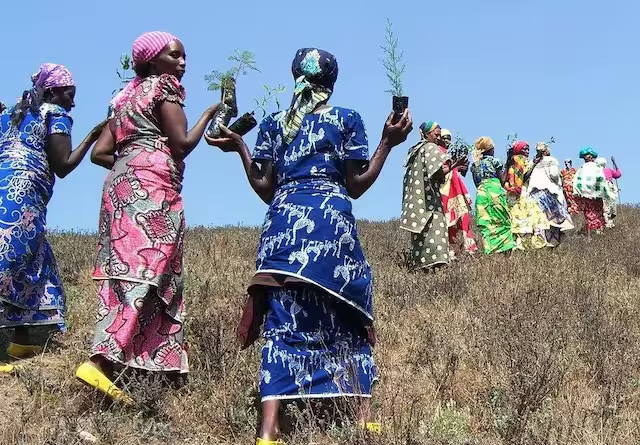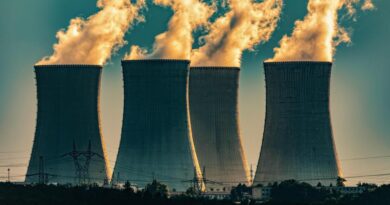The importance of female voices in the development of sustainable built environments
on 8 March 2024, we celebrated International Women’s Day, and this year’s campaign theme as set by the IWD website is #InspireInclusion, with the United Nations’ official theme being “Invest in women: accelerate progress”.
Both of these themes encourage us to challenge situations where women’s voices are not included, and to speak up for gender equality if we want to create prosperous economies and a healthy planet.
This has got me thinking back to January this year, when the Azerbaijan COP29 committee failed to include any women.
As a response, myself and a group of more than 88 women leaders from business, civil society and academia supported We Mean Business Coalition’s letter to COP29 President, Ilham Aliyev. The letter expressed our deep concerns and urged for the inclusion of leading women voices to ensure successful negotiations at COP, and bolder decisions to defeat the worst case climate change scenarios.
The campaign to reverse the decision was ultimately a success.
But nevertheless, this International Women’s Day serves as a reminder of the ongoing challenges still faced by women in the workforce.
As COP28 was pitched as the “most inclusive” COP, have we taken a huge step backwards?
The climate challenge requires us to bring all sorts of people to the table; we need diverse representation for collaborative climate action. With only male-led leadership, we will be missing out on key voices from which our society is composed.
Women have different perspectives and experiences, which means they can bring alternative solutions to the forefront of climate action.
We lose time if we lose diversity.
One of the biggest wins at COP28 was how we saw young people being brought into the COP process.
For COP29, we need to hold each other accountable and work together to spot and rectify situations where we might be taking a major step backwards in progress.
The green economy will be responsible for 67 million new jobs by 2030, but the current gender distribution in the sectors where most jobs will be added suggests that women will hold only 25% of those new jobs (Source: BCG, 2021). So what needs to change in the building and construction sector to enhance opportunities for women?
At WorldGBC and around our networks, we are a community that mobilises businesses that are truly connected with the Sustainable Development Goals (SDG) agenda.
But in many SDG progress reports we are actually seeing regression. It seems we need to really go deeper into what a responsible business is.
Companies may have started shifting towards focusing on sustainability, but they are not angled towards resilience and wellbeing in their triple bottom line. We need well rounded, responsible businesses which understand that society will hold them accountable for not being equitable in their business practices.
The social sustainability agenda in the built environment must be acted upon from a human rights and an equity angle. We need to push for governments to enable better regulation. People should no longer be trying to understand what the ‘S’ in ESG means for business.
It’s 2024, this should already be embedded in your business strategy.
Vulnerability to climate change is exacerbated by inequity linked to gender and other marginalisation. So we know that women can bring unique perspectives to the development of sustainability in the built environment.
Anyone who looks at the news today can feel a lack of hope. Women and children are known to suffer disproportionately when it comes to the effects of conflicts and natural disasters.
But in a world that is becoming increasingly polarised, I think women can often be more sensitive and open when it comes to advancing collaborative and inclusive solutions.
We can only expect to make progress by listening to the voices of those most impacted.
The Roof Over Our Heads initiative, which we (WorldGBC) support alongside the UN High-Level Climate Champions, aims to improve, by 2050, the lives of 2 billion climate vulnerable people living in informal settlements. It removes any sense of pity and instead focuses on action.
It does this by putting local women from vulnerable communities at the heart of the decision-making process, whilst working alongside key actors from the construction industry.
From this approach we are seeing a system of solutions taking place from the ground up, which is starting to rapidly improve the lives of many living in informal settlements.
This International Women’s Day, I think we can all learn from this example of the power of effective change when we embrace diverse voices, inspire inclusion and invest in women to accelerate progress for an inclusive system where all perspectives are listened to and valued.




